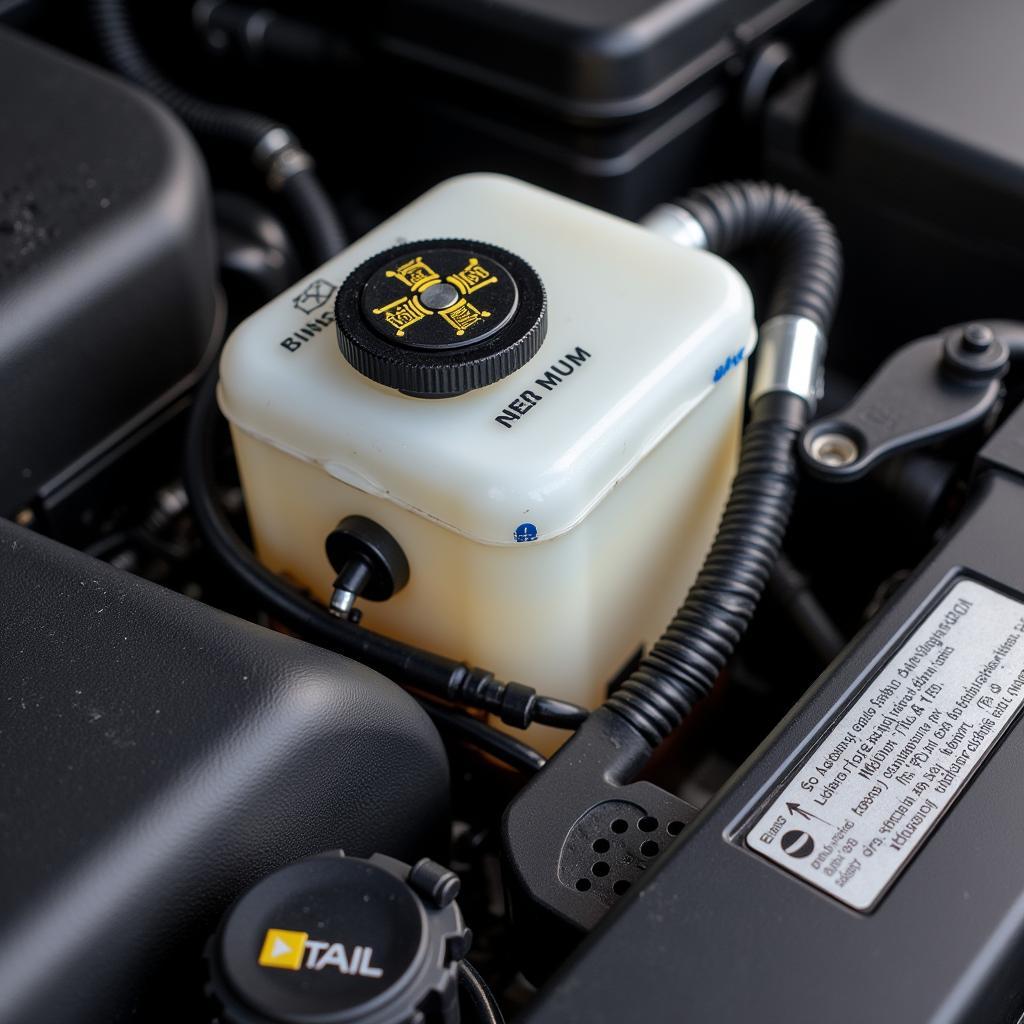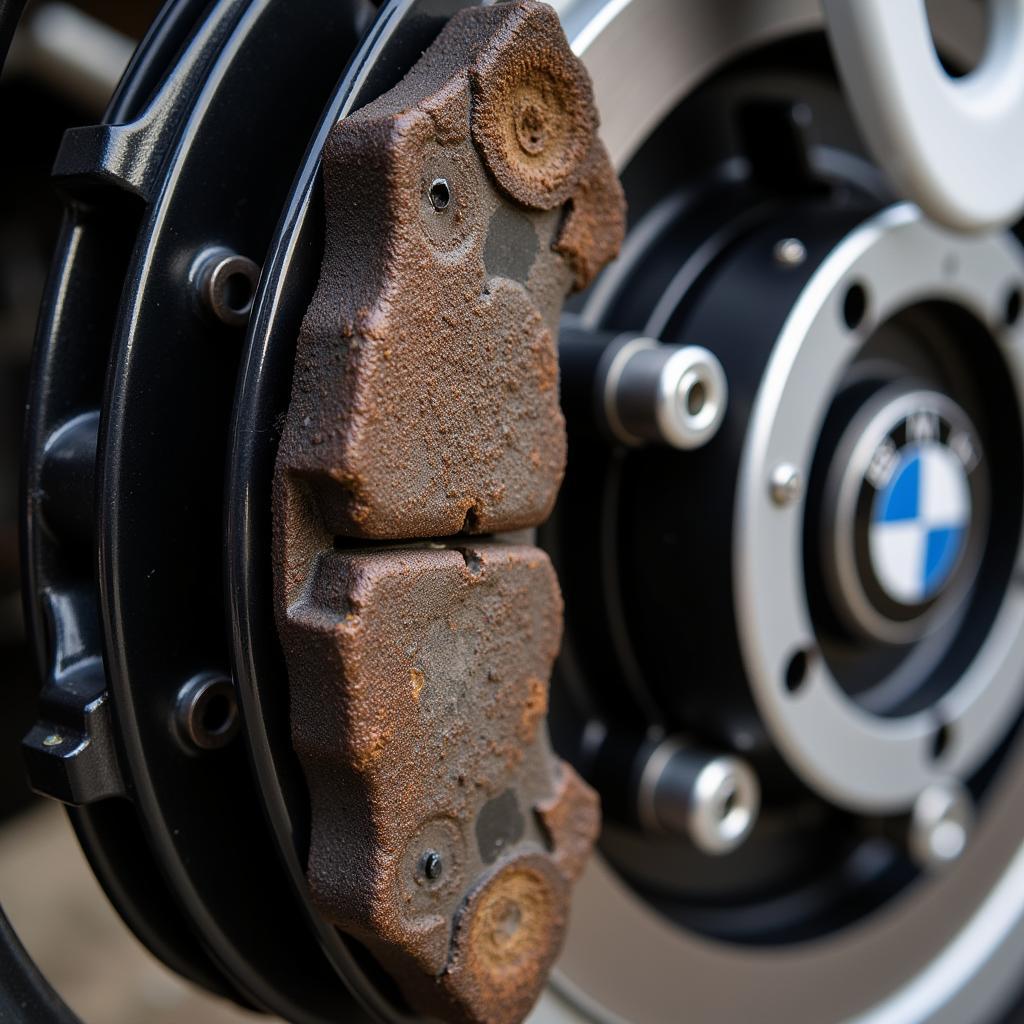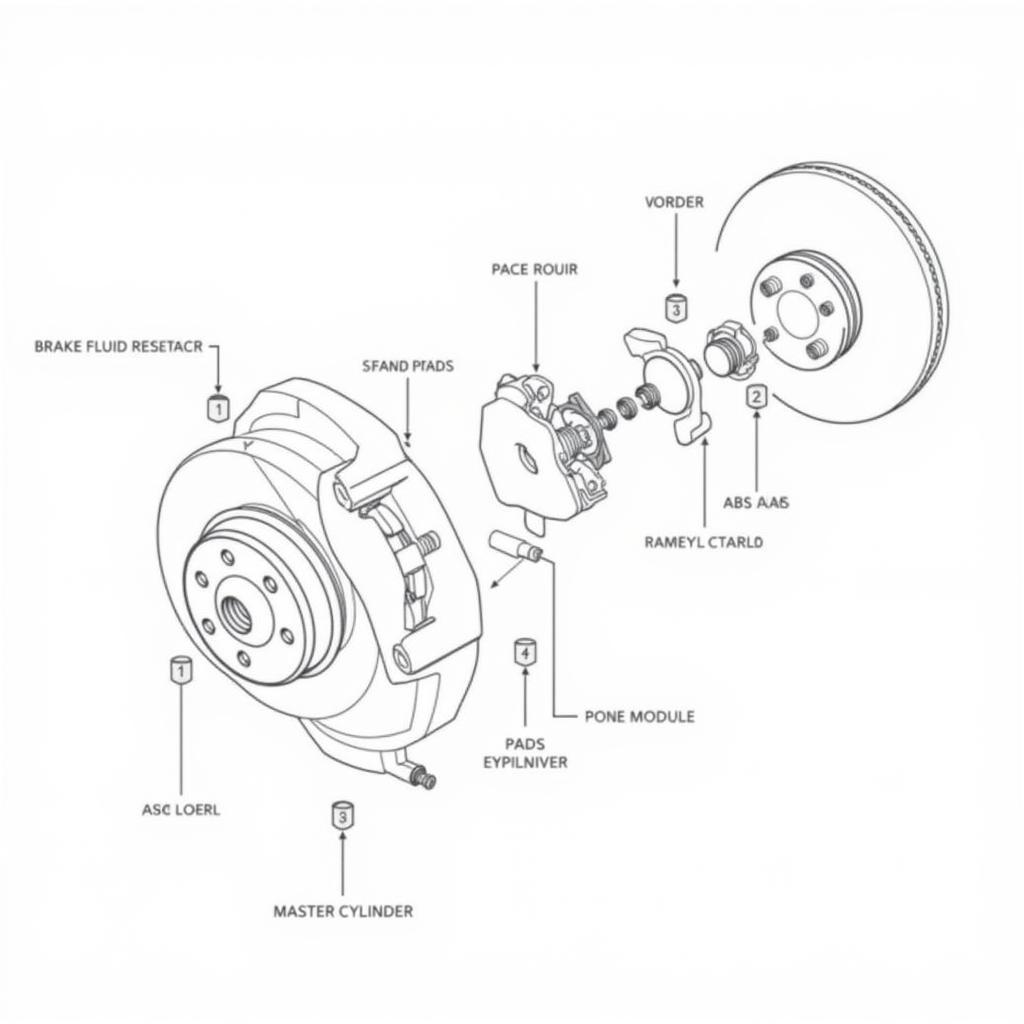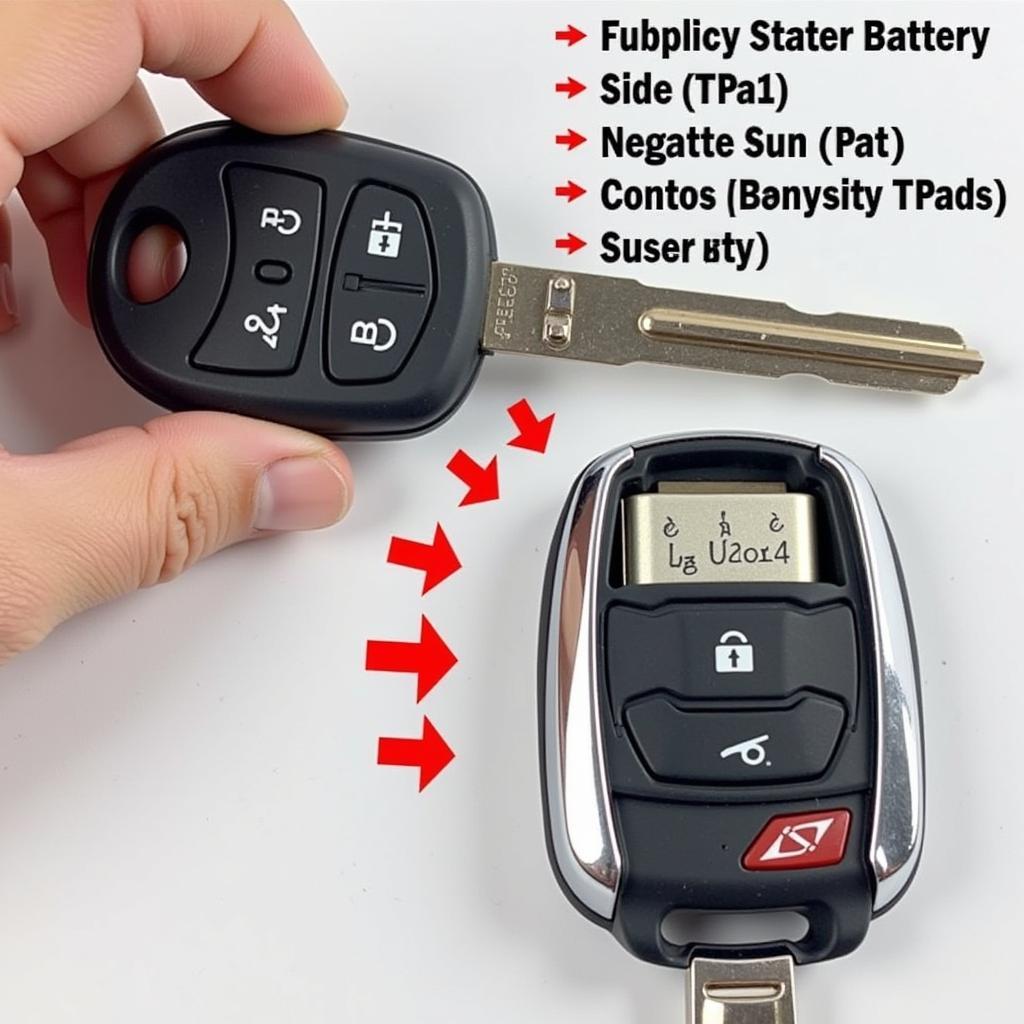That dreaded red or yellow glow on your dashboard – the BMW brake warning light – can be a real heart-stopper. It signals a potential problem with your braking system, demanding immediate attention. This article will explore the various reasons behind the BMW brake warning light, from simple fixes to more complex issues, helping you diagnose and address the problem effectively. We’ll cover common causes, troubleshooting tips, and when to seek professional help, empowering you to take control of your BMW’s safety. Learn more about your BMW brake warning lights at bmw brake warning lights.
Decoding the Different BMW Brake Warning Lights
Your BMW may display a few different brake-related warning lights. Understanding what each signifies is the first step to resolving the issue. A red brake warning light typically indicates a critical issue, such as low brake fluid or a serious malfunction in the braking system. This requires immediate action. A yellow brake warning light, often accompanied by an ABS light, usually signifies a problem with the Anti-lock Braking System (ABS). While less urgent than a red light, it still requires attention to ensure optimal braking performance.
Common Causes of the BMW Brake Warning Light
Several factors can trigger the brake warning light in your BMW. One of the most common culprits is low brake fluid. Brake fluid is essential for transferring pressure from the brake pedal to the brake calipers, and low fluid levels can significantly compromise braking performance. Worn brake pads are another frequent cause. As your brake pads wear down, they trigger a sensor that illuminates the warning light. A faulty brake sensor itself can also be the issue, sending a false signal even when the brakes are functioning correctly. More serious problems, such as a malfunctioning ABS module or a leak in the brake lines, can also trigger the warning light. For specific information regarding the E46 model, refer to bmw brake warning light reset e46.
 Low Brake Fluid in BMW Brake Reservoir
Low Brake Fluid in BMW Brake Reservoir
Troubleshooting Your BMW Brake Warning Light
If your BMW brake warning light comes on, the first step is to check your brake fluid level. Locate the brake fluid reservoir in your engine bay and ensure the fluid level is between the minimum and maximum markings. If the fluid is low, top it up with the correct brake fluid specified in your owner’s manual. If the light persists, inspect your brake pads for wear. Thin or worn pads require replacement. However, if you recently had your brake pads replaced and the light remains on, a faulty brake pad sensor might be the issue. For information on a specific model year, see 2000 bmw brake warning light.
 Worn Brake Pads on a BMW
Worn Brake Pads on a BMW
When to Seek Professional Help
While some brake warning light issues can be resolved with simple DIY fixes, others require professional expertise. If you’ve checked your brake fluid and pads and the light persists, it’s time to consult a qualified BMW technician. A persistent brake warning light could indicate a more serious problem, such as a faulty ABS module or a leak in the brake lines. Ignoring these issues can lead to dangerous driving conditions and costly repairs. If your car won’t start alongside the brake warning light, consult a professional immediately. You can learn more about this specific issue at bmw brake warning light won’t start.
Resetting the BMW Brake Warning Light
After addressing the underlying issue, you may need to reset the brake warning light. The reset procedure can vary depending on the model and year of your BMW. Some models require a specific sequence of button presses or the use of a diagnostic tool. Refer to your owner’s manual or consult a BMW technician for the correct reset procedure for your vehicle. For a general guide on resetting the brake warning light, visit how to reset bmw brake warning light.
Conclusion
The BMW brake warning light is a crucial safety feature, alerting you to potential issues with your braking system. Understanding its various meanings and common causes empowers you to take appropriate action, ensuring your safety and preventing further damage to your vehicle. While some issues can be addressed with simple DIY fixes, others require professional intervention. Don’t ignore the BMW brake warning light. Addressing the problem promptly will keep you safe on the road and maintain the performance of your BMW.


